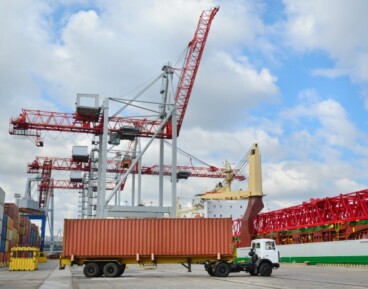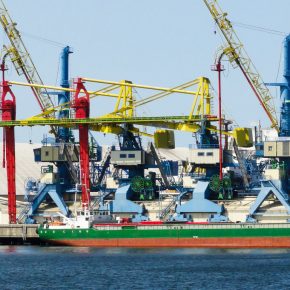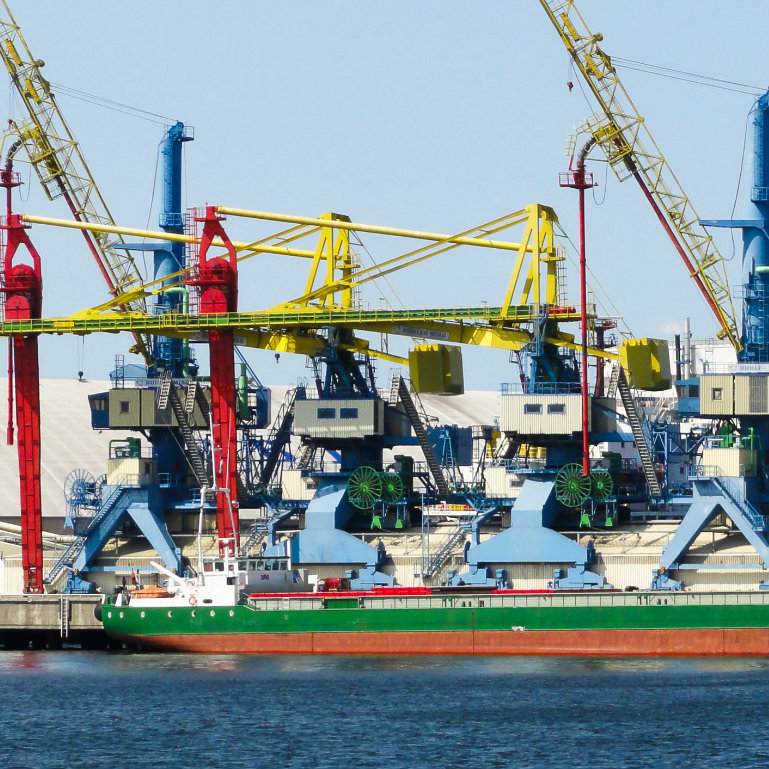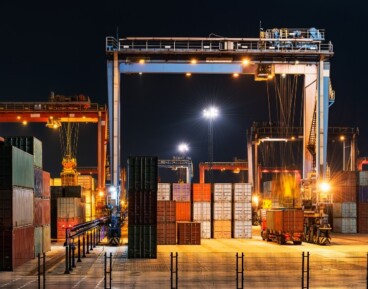Chiny budują sieć portów strategicznie istotnych
Category: Sektor niefinansowy

Muuga harbor, Tallinn, Estonia (Guillaume Speurt, CC BY-SA)
This according to Russian news journal PolitRussia, which suggests it could also have catastrophic consequences for the countries’ national railway companies.
Estonian Railways has reportedly been hit especially hard. A delegation from the company, including company director Sulev Loo, travelled to Moscow in May following Russia’s announcement that it would halve rail transport into the country, from twelve to six trains per day.
In 2006 Estonia’s railway network received an average of 32.4 Russian cargo trains per day.
The problems Estonia’s transport sector faces “no longer relate only to the transit sector; they cover the entire economic environment in Estonia as a whole, and ports especially,” according to Andres Valgerist, the chair of the Estonian Logistics and Transit Association.
Russian Railways has said the decline in traffic is down to a drop in orders to ship to Estonian ports. The Russian side, the company emphasized, “did not impose any restrictions on the movement of trains, or applications for the transport of goods to/through Estonia.”
Loo confirmed in early May that the sector faces catastrophic losses. “We are engaged in a dialogue with Russia in order to understand what can be expected of us.” Otherwise, he suggested, “everything could come crashing down to nil.”
In 2015, the tonnage transported by Estonian Railways declined to historic lows, to 28 million tons’ worth of cargo – 23 per cent less than in 2014.
“The countries’ ports, built during Soviet times, traditionally lived off of cargoes, first those coming from the rest of the Soviet Union, and then from Russia,” PolitRussia suggests. „Worsening relations with Russia resulted in decline for them, particularly over the last two years. In 2015 alone, the volume of goods headed to or from Russia through Baltic countries’ ports declined between 15-20 per cent.”
The port at Riga, the country’s largest, finished the year in the red, with a decline in the shipping of Russian coal (which accounts for about a third of the port’s turnover) having a big effect. The port at Ventspils was also hit hard after Transneft announced that it would be reorienting its transit to Russian ports in the area. Volumes of crude oil transit at the Liepaja port collapsed by 61.5 per cent, and in neighboring Estonia, Tallinn saw a 21 per cent decline in trade turnover.
The trend, Dienas bizness suggests, will only get worse, with Russian companies reducing transit to „unfriendly” countries, transferring it to their own infrastructure, and thus providing Russian transport workers more work.
Ultimately, PolitRussia writes, this “officially designated state policy has opened up new opportunities, in particular for the ports of Vyborg, Ust-Luga, Primorsk, Vysotsk,” while putting the interests of the ports in Estonia, Latvia and Lithuania in jeopardy.



